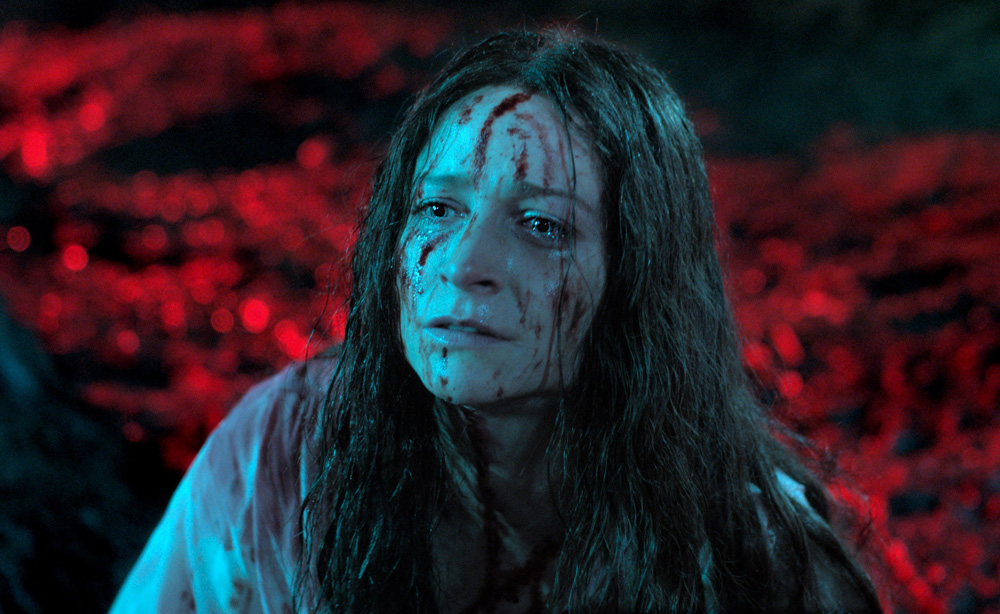You wonder who would take a job on a movie ratings board since you know it’s not likely to be people who actually like movies, advocating for a trim here or there and not having any say in what they see. In “Censor,” it’s clearly a calling for Enid Baines (Niamh Algar), who prides herself on dispassionate evaluations of the movies she sees, not driven by any particular disgust for obscenity, but seeing herself as a protector of others, essential in the era when video nasties became popular in England as the advent of VHS tapes spawned a raft of made-on-video productions that were as cheap and grizzly as they come. Staying at the office late and content to put up with the casual misogyny that comes along with a gig where women are blithely slaughtered on camera, Enid can stand tall as the last line of defense between the innocent minds of the British public and psychotic filmmakers. However in Prano Bailey-Bond’s utterly brilliant debut, that barrier starts breaking down when a journalist connects a horrific murder to one of the films Enid’s rated as a copycat crime, adding scrutiny to her decision making in ways she never has felt before.
Arguably, the only person that’s seen more video nasties than Enid is Bailey-Bond, who with co-writer Anthony Fletcher, comes up with a truly inspired take on the notion of someone’s life turning into a horror film. Screams from the movies she watches can follow her on her walks home at night, but neither than nor the harassing phone calls and mild innuendo at work about her capabilities on the job that occur in the wake of the rating kerfuffle puts no more pressure on Enid than she’s apt to place on herself, and the film gradually reveals why she is so committed to her work, having her sister Nina go missing on her watch when they were both young girls. Now with her parents doing their very least to disabuse her of the notion that she was responsible, Enid not only believes she’s serving a righteous cause in preventing the public from seeing violence, but by subjecting herself to it again and again, she can prove her toughness and resolve to herself.
It’s an incredibly juicy part that Algar tears into with great aplomb, as Enid’s pride in doing her job diligently slowly erodes with what she sees — and “Censor” starts suggesting it may only be her seeing it — when she takes a special interest in the work of the infamous director Frederick North. Cinephiles will appreciate both the detailed recreations of video nasties that Bailey-Bond puts together — you have to love a director who casts themselves as “Bloodied Woman in Rejected Video Nasty” — as well as the point when Enid has to go searching for North’s work in video stores that pretend they don’t hide it underneath the counter. But beyond all the movie love on display, “Censor” works as such a strong study of someone whose personal and professional lives are dangerously intertwined and loses sight of every boundary in her life, though Bailey-Bond ensures it has plenty of edge.
“Censor” will play once more at the Sundance Film Festival, available for a 48-hour window starting on January 29th at 4 am MT.




